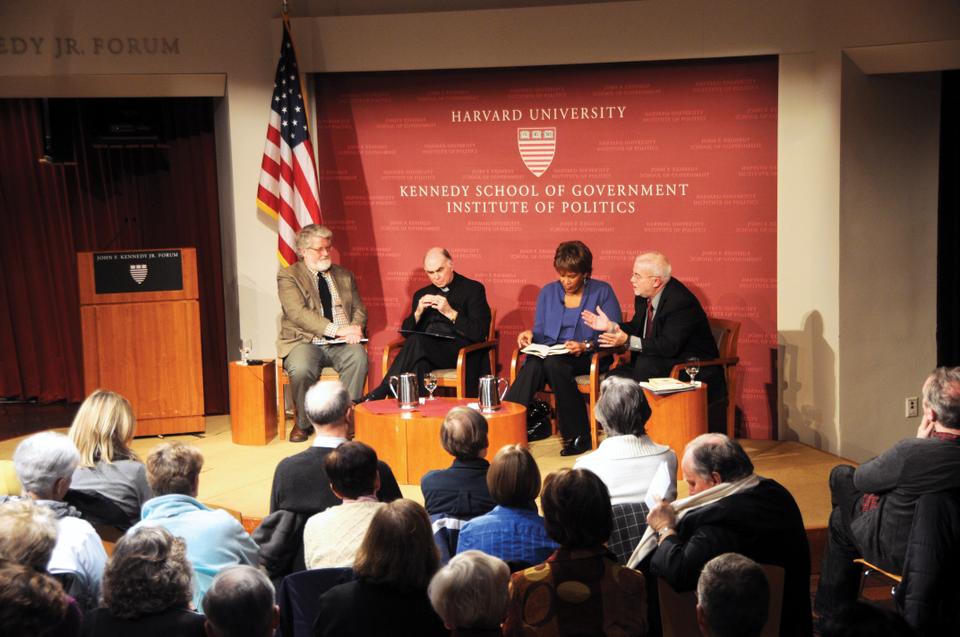
News
Cambridge Residents Slam Council Proposal to Delay Bike Lane Construction

News
‘Gender-Affirming Slay Fest’: Harvard College QSA Hosts Annual Queer Prom

News
‘Not Being Nerds’: Harvard Students Dance to Tinashe at Yardfest

News
Wrongful Death Trial Against CAMHS Employee Over 2015 Student Suicide To Begin Tuesday

News
Cornel West, Harvard Affiliates Call for University to Divest from ‘Israeli Apartheid’ at Rally
Evangelist Panel Discusses Religion in Politics
Speakers at IOP consider the importance of the church amid economic problems

In a panel discussion at the Institute of Politics yesterday, three noteworthy evangelists discussed how their religious traditions, which are often seen as conservative, can offer a progressive view of the fundamental questions that arose following the financial crisis.
The speakers emphasized that society should not overlook the possibility that religion can positively inform politics, despite the political world’s commitment to secularity in modern times.
Jim Wallis, a best-selling evangelical author and president of the Christian social justice organization Sojourners, said that it was important to move beyond the individualistic mindset—as he called it, the “it’s all about me, and I want it now”-attitude.
“I think the Native American ethic is very appropriate: evaluate decisions today on its effect on seven generations from now,” Wallis said, adding that religions can offer a more collectivist view of the consequences of one’s actions on a given community.
“A crisis is a terrible thing to waste. If we don’t use it for a reset on the personal and community level, then all the suffering had been in vain,” Wallis said. “But if this is a time in what a new ‘normal’ should look like, it could be redemptive.”
The kind of decisions that the government now faces are not only factual or empirical, but moral as well, the speakers said. The church can—and should—take a stance on issues of fiscal responsibility and ethics, to participate in the progressive collectivist response to the crisis.
“I’m not trying to convert somebody to my god versus your god,” said Liz Walker, an award-winning television journalist who represents the African Methodist Episcopal Church. “But...religion holds an important message.”
The speakers referenced a recent New York Times column written by Nicholas D. Kristof ’81-’82, who argues that the evangelicals have come to the forefront of current social justice issues.
Harvard Kennedy School professor J. Bryan Hehir, whose work focuses on religion and public life, also participated in the panel discussion.
After the panel, attendee Zachary M. Goldstein ’13 said that he would like such discussions—which challenge the traditional place of religion in relation to politics—to become more mainstream.
“This provided a more nuanced approach,” Goldstein said. “Too often there’s a tendency to lump the evangelical movement into the right side of our politics.”
Dennis M. Mwaura ’12 said he appreciated the panel members’ acknowledgement that religion may have its limits, but nevertheless intersects with politics.
“I’m not religious but I was able to identify with the speakers’ progressive agenda,” Mwaura added.
Want to keep up with breaking news? Subscribe to our email newsletter.
